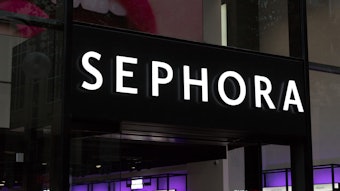
A recent ruling from the European Union’s Court of Justice found that luxury brands, including Coty, have a right to protect their image and stop retailers from selling products via online platforms such as Amazon and eBay.
Global Cosmetic Industry spoke with New York-based lawyer Rania Sedhom, founder of Sedhom Law Group, about what this ruling means for the future of e-commerce, potential backlash in the E.U. and how exclusivity can be both a blessing and a curse for brands.
Global Cosmetic Industry (GCI): In your opinion, what are some of the immediate implications of this ruling? What does this mean for the future of e-commerce now that brands have a say as to where their products are sold?
Rania Sedhom (RS): It is going to make e-commerce very complicated. If there is an e-commerce reseller that's selling internationally it now has to review all of its contracts to determine if there is a change they have to make, or whether the contracts allow brands to make mid-contract changes. Certainly, contract re-negotiation will include a new definition of territory. Some smaller, multi-brand retailers may even decide to limit e-commerce to just the U.S., Canada and Asia, non-E.U. directive countries.
GCI: Has there been any backlash or challenges in the E.U. due to the ruling?
RS: It will be interesting to see what happens. The E.U. is an interesting place. While Brexit is going to be a challenge in many ways for a lot of the E.U. nations, it may actually bolster the U.K.'s business because they're not going to be part of this new directive. It could make commerce easier in some ways in the U.K. That might be a unique perspective to take a look and see exactly what happens.
Another issue is that it is extremely costly. If a customer is on a website in the U.K., they see one thing, and if they're on the same website in the E.U. they see another thing. I presume that takes a substantial amount of resources.
GCI: How difficult will this ruling be to enforce and monitor?
RS: On Amazon, monitoring products that are put together by various different sellers, such as smaller mom-and-pop kind of stores that are using Amazon to distribute their goods, will be a challenge. However, a large company like Coty can have the wherewithal to do a spot check and try to order something, then work backward and try to determine where it came from.
GCI: You mentioned in a previous interview with Global Cosmetic Industry the possibility of Amazon hitting back with its own restrictions. What could those look like?
RS: Amazon could have a policy that implies: If a company is not going to be more open in terms of permitting any person interested in buying its product on Amazon, then Amazon won't allow any of the company's products to be sold. That could hit a smaller company very hard because Amazon is likely its largest distributor. That's something that Amazon could do, I don't know if it will happen.
GCI: Could other aspects of distribution be challenged?
RS: Yes, that's the scary part. Complete and utter control over every aspect from point A to point B can hinder commerce. Knowing at all times where products are, who's selling it and who's buying it may seem like a great thing in the beginning. But, things always have a tendency of not being as simple as they appear. If a company makes it more difficult to do business with it and people get fed up with doing business with it, there may no longer be a business. Being overly restrictive can actually hurt commerce to the extent where there is none. This happened to a luxury cosmetic line years ago. It made doing business too difficult and resellers refused to re-order products. Now, the brand has all but disappeared from the U.S.
If Amazon was chosen because Coty was worried about unauthentic products being sold, that's a conversation they might be able to have with the distributor. But if a company [antagonizes] a distributor, that distributor is the entity that makes inroads into other areas that the company may never get into. Maybe, the area is very rural, but a company may find its biggest fan there.
As brands have more and more power to control, they really need to do a cost benefit analysis of whether this control is worth it for their own brand and consumers. Exclusivity is great. Overly exclusive to the point where I can't buy it, that's not great.










